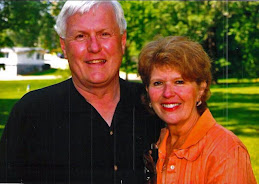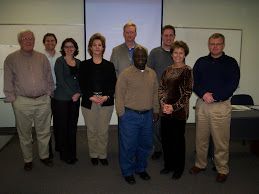(2009) BA 225 Week 7 Lecture – Paul Rux, Ph.D.
I began teaching for Upper Iowa University onsite (Madison, Wisconsin center) in 1996. I started teaching online for it in 1999. Below is a select list of courses that I have taught over the years to give you a better idea of the depth of my knowledge of management.
Business Ethics (BA 225, undergrad, online)
Continuous Quality Improvement (BA561, grad)
Organization Diagnosis & Intervention Design (BA560, grad, online)
Organization Development (BA553, grad)
Training and Development (EDU587, grad, online)
Training and Development (BA371, undergrad)
Supervision (BA362, undergrad)
Management Information Systems (BA222, undergrad)
Management Information Systems Strategies (MIS 435, undergrad)
Senior Projects (ID498, undergrad)
Supervised 8 Master’s in Business Leadership internships and theses.
Project Management (MIS360, undergrad)
M.B.A. Business Research Methods (BA528, grad)
Over the years, I have had many chances to reflect on what management is and is not.
Above all, I have had the challenge of “boiling down” management to its basic essence.
Here is the outcome of my “boiling down”. Management knows when to use “carrots” and “sticks”. When do we use rewards – “carrots?” When do we use punishment – “sticks”? My “carrots and sticks” approach mirrors the Theory X (“sticks”) and Theory Y (“carrots”) of Douglas McGregor’s classic The Human Side of Enterprise. He got it right, and here is why.
Theory X has its roots in “Scientific Management” of Frederick Taylor at the start of the last century. It was a response to the needs to manage well in the new factories of the Industrial Revolution. We can calculate what needs to be done and how best to do it. We can design reasonable (“scientific”) job structures and processes – and expect people to measure up to them. For example, Taylor studied the best size of shovels for jobs to avoid doing damage to the worker and improving productivity at the same time.
Theory Y has its roots in “Human Relations Management” of Elton Mayo. It was a response to the extreme applications of “Taylorism” above. We humans are more than “head”. We are also “heart”. We have feelings. We crave meaning. We value fairness. As a result, we need to treat people with consideration and as more than extensions of assembly lines and machinery. If Taylor value engineering, precise measurements, Mayo valued psychology and sociology. Both, of course, have their place in management.
The challenge now is to restore balance between Mayo and Taylor, between Theory Y and Theory X, between “carrots” and “sticks”. We have succumbed to “psycho-babble”, pop psychology that more and more excuses the need for disciplined behavior in the workplace. If we do not, we shall continue to destroy ourselves and favor outsourcing.
This infection of “psycho-babble” in large part has also come from our permissive public school system, which is busy “measuring down” to the lowest common denominators of behavior. The result is the lack of a work ethic, the acceptance of disciplined behavior, the need to measure up to reasonable expectations on the job. As a result, we have a labor force of persons who are having a prolonged adolescence until age forty overall.
Industrial psychologist Morris Schechtmann, author of Working Without a Net, has studied the results of this prolonged adolescence in the American workforce. His conclusion is: structure the workplace, for what passes as a workforce in this country cannot do it. He advocates a strong dose of Taylor’s “Scientific Management”, or McGregor’s Theory X.
Theory X, in effect, says, we expect you to “measure up” or expect the use of a strong “stick”, uncomfortable consequences. It is the antidote to the current Theory Y psycho-babble that excuses laziness, insolence, cheating, lying, etc. to avoid hurting feelings.
Theory Y now gives “carrots” to persons regardless of their behavior, productivity, for they feel entitled to rewards without work. To expect otherwise, hurts their precious feelings. Meanwhile, companies outsource jobs overseas to countries with work ethics.
If you cannot swing a “stick”, do not get into management. If you have problems with concepts like “discipline, duty, authority, etc.” do not get into management. In other words, more and more, “nice guys” will “finish last.” Theory Y alone cannot hack it.
It is not popular say what I have just shared. The thought police will soon come after me. Yet, students of management ought not to go into the world of practice with “psycho-babble” blinders to what needs to be done in order to “right the ship” and “sail” it.
Subscribe to:
Post Comments (Atom)









1 comment:
First, I see where you are coming from with the need for more balance between theory Y and X thinking in management, as theory Y often comes across as the positive one and X as the negative. There is definitely a need for defining clear outcomes as Buckingham mentions in his book First Break All the Rules. However, how hard and when should you swing it? If you come out with too heavy a stick, you not only scare others away, but you risk losing valuable buy-in from the people in your charge. Instead, you get lip service and not real personal investment. Moreover, each individual person has inherent personality traits that bend them towards X or Y--the trick is, in my opinion, to know yourself and be aware of your limitations.
Post a Comment